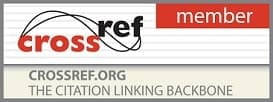International Journal of Homoeopathic Sciences
2022, Vol. 6 Issue 1, Part A
Effects of individualized homoeopathic medicaments in Psoriasis: A single blind, simple randomized, placebo controlled study
Author(s): Mohanty and Dr. Niranjan
Abstract:
Psoriasis is a non-contagious, chronic skin condition that produces plaques of thickened, scaling skin. It is considered as an incurable, long-term (chronic) inflammatory skin condition. Psoriasis is estimated to affect 2–4% of the population of the western world. Commonly appears for the first time between the ages of 15 and 25 years. In India the prevalence varies from 0.44 to 2.8%.Specific medical signs used for diagnosis are Auspitz's sign, Koebner phenomenon, Candle grease sign with itching, pain localized to papules and plaques. As it was understood to be a chronic, intractable & incurable disease, hence it was felt imperative to carry out a systematic constitutional treatment to validate the observations of earlier Homoeopaths and the subtle homoeopathic philosophy.
Research Objectives: Primary objectives were to observe the change in disease severity and change in quality of life of the people. Secondary objective was to ascertain the effect on frequency of relapse and recurrence interval.
Methodology: The study was simple randomized and single blind method. The sample size was fixed at 90.Test group 60 i.e. Group – I(Centesimal -30), Group – II(50 Millesimal -30) & Group – III( Control) 30. Duration of study was for two years. It was carried out at International Study & Research Centre on Homoeopathy, Bhubaneswar. There were inclusion & exclusion criteria, treatment plan, follow up with Psoriasis Area Severity Index (PASI), Psoriasis Disability Index (PDI), Relapse and Recurrence Interval (RRI).
Results: Were documented on following points. Psoriasis Area Severity Index (PASI)/Psoriasis Disability Index (PDI)/ Relapse & Recurrence Interval (RRI).
Statistical Analysis: By Kruskul Wallis Test, H0 was rejected. In paired ‘t’ test for PASI, Group – I and II results (P< 0.0001, CI= 95%). It means significantly effective in reducing the severity & area affected. Group – III, results were (P< 0.3811, CI= 95%) not significantly effective in reducing the severity & area affected. PDI results for paired ‘t’ test, for both Group –I & II were (P<0.0001, CI= 95%), it means significantly effective in enhancing the quality of life. Group – III results (P< 0.9294, CI= 95%) were non significant in enhancing the quality of life. Chi-Square test for comparison of R.R.I. in medicine group and placebo group were significant. But comparison between Centesimal and Fifty Millesimal potency was non significant. Overall response result were put to Chi-Square test for comparison of medicine groups and placebo group. It was statistically significant.
Conclusions: 1. Constitutional Homoeopathic medicine is the first line of approach to treat Psoriasis. 2. Both potencies are equally important.
Pages: 19-27 | 863 Views 309 Downloads

How to cite this article:
Mohanty, Dr. Niranjan. Effects of individualized homoeopathic medicaments in Psoriasis: A single blind, simple randomized, placebo controlled study. Int J Hom Sci 2022;6(1):19-27. DOI: 10.33545/26164485.2022.v6.i1a.511







